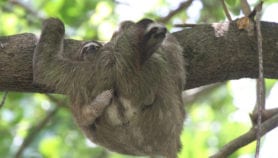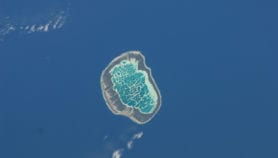By: B. Bulgamaa
Send to a friend
The details you provide on this page will not be used to send unsolicited email, and will not be sold to a 3rd party. See privacy policy.
Japanese and Mongolian researchers have teamed up for a bioprospecting project to collect and identify novel microorganisms in Mongolia.
The team returned from their expedition this month (August).
The project, a collaboration between Japan’s National Institute of Technology and Evaluation (NITE) and Mongolia’s Academy of Sciences (MAS), was agreed upon in June last year and will run for three years.
"Mongolia has different environmental conditions compared with Japan. My hope is we will isolate some interesting and new microorganisms," said Ando Katsuhiko, Director of NITE’s Biotechnology Development Centre.
Microorganisms that live in acute heat or cold have often evolved compounds or processes that help them survive in these extreme conditions.
Ando said Japanese and possibly Mongolian companies could be interested in the microorganisms or their compounds isolated in this project for possible commercial uses, such as compounds that could be used as pharmaceuticals.
"We hope to discover microorganisms that could be contribute to human welfare," Ando told SciDev.Net.
If any of the microorganisms are patented or commercialised, Mongolia will benefit from part of the profits, in accordance with the international Convention on Biological Diversity.
The researchers have collected over 2800 samples of bacteria and fungus from soil on the banks of a salt lake and a geyser field in the western Mongolian province of Uvs Aimag.
Ando said the team is currently identifying and classifying the microorganisms.
B. Tsetsegee, head of MAS’s Microbiology Division, said the main goal of the project is to identify a broad range of Mongolian microorganisms.
But the project is also very important for the development of Mongolian microbiology and biotechnology, Tsetsegee said. As part of the project, NITE will assist Mongolian science by transferring technology and training researchers. Seven Mongolian researchers are currently involved with the project.
"My personal interest is to establish a new molecule taxonomy laboratory in Mongolia," said Tsetsegee.
NITE is also collaborating with Indonesia, Myanmar and Vietnam and hopes to find new heat-resistant microorganisms in these tropical areas. They also hope to begin similar work in China and Thailand.
More on Bioprospecting
News
Combining cassava species could lead to better crops
[SAO PAULO] Combining tissues from different cassava species may lead to a new method for improving t ...16/10/12
News
Biodiversity data gaps ‘need bridging’ to meet global targets
[HYDERABAD] Global biodiversit ...11/10/12
News
Meeting puts socioeconomic impact on biosafety agenda
[HYDERABAD] An international treaty meeting on biosafety has recommended to include the socioeconomic ...09/10/12
Feature
Guide and glossary to CBD
The Convention on Biological Diversity (CBD) has spawned a series of agreements and technical ...07/10/12








